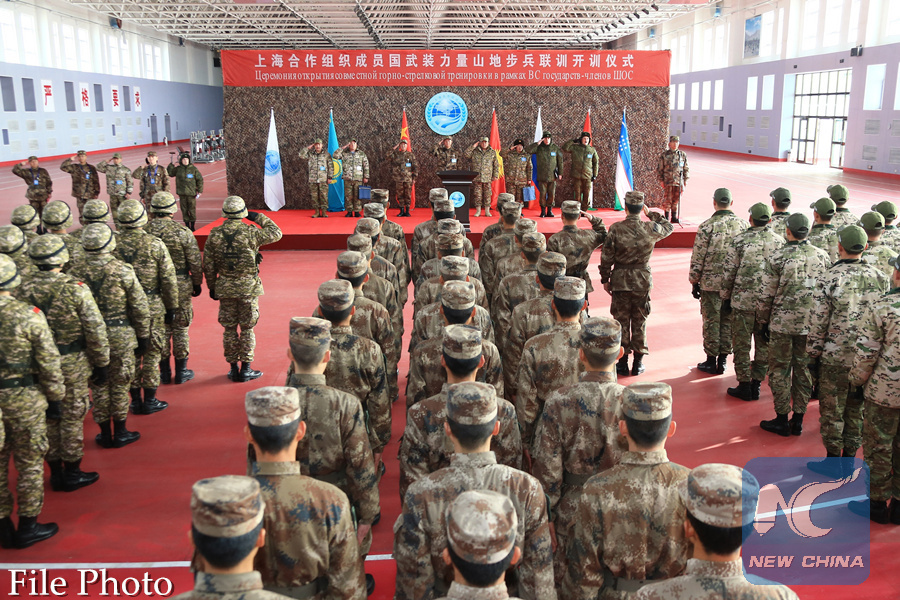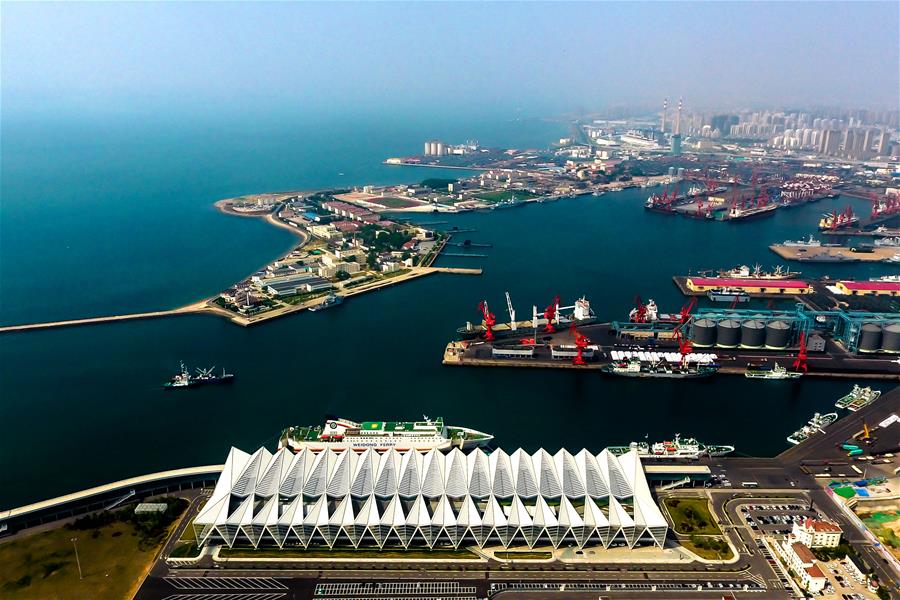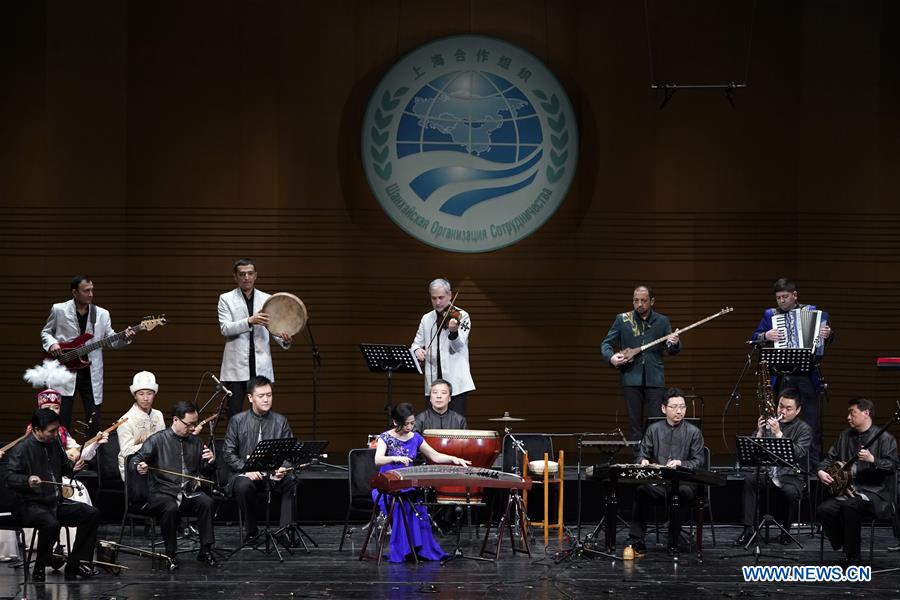
Craftswoman Li Wenling shows her paper-cutting works at the media center for the 18th SCO Summit in Qingdao, East China, June 6, 2018. (Xinhua/Li Ziheng)
Since its establishment 17 years ago, the Shanghai Cooperation Organization (SCO) has evolved from a security organization into a comprehensive regional organization with major worldwide influence since it has a massive population that covers a large geographical area.
The organization now goes beyond security cooperation into economic and cultural fields – making it a strong model for cooperation.
Security Cooperation

Infantry forces from member countries of the Shanghai Cooperation Organization start a seven-day joint training exercise in Korla, northwest China's Xinjiang Uygur Autonomous Region, Nov. 28, 2016. (Xinhua/Wang Ning)
Opposing the three evils of terrorism, separatism, and religious extremism have become an important consensus among SCO member states. The SCO has signed a series of legal documents to combat these problems including the Shanghai Convention on Combating Terrorism, Separatism, and Extremism at the Shanghai Summit of Heads of State in 2001 and the SCO Convention on Combating Extremism at the Summit of Heads of State in Astana, Kazakhstan in 2017.
The SCO actively promotes the establishment of national and international legislative mechanisms to combat terrorism, organized crime, and drug trafficking while also emphasizing the creation of a unified global front against terrorism. These mechanisms are based on international laws and support from the United Nations.
The SCO has also conducted regional counter-terrorism exercises on a number of occasions to create a strong deterrent to the "three forces”. The SCO is an important force in maintaining security and stability in the region.
Regional Economic Cooperation

Aerial photo taken on May 7, 2018 shows a cruise port in Qingdao, a coastal city in east China's Shandong Province. (Xinhua/Guo Xulei)
Strategies such as China's Belt and Road Initiative, the Eurasian Economic Union led by Russia, and Kazakhstan's Bright Way are all meant to bring about improved economic development for the region.
At present, the number of flights between China and Central Asian countries has increased more than tenfold compared to a decade ago. China has established 21 overseas economic and trade cooperation zones in the SCO member countries. In September 2014, several government leaders signed the Agreement on Facilitation of International Road Transport to promote connectivity and integration among the member states of the SCO.
The SCO said it will further promote regional trade and investment facilitation, create favorable conditions for the development of regional economic cooperation, achieve the free flow of goods, capital, services, and technologies in the region, and promote the diversification of the commodity structure of the SCO member states.
People-to-people Exchanges

Musicians play Chinese folk music at the Shanghai Cooperation Organization (SCO) Art Festival in Beijing, capital of China, May 30, 2018. (Xinhua/Shen Bohan)
The SCO member states cooperate closely in the areas of health, science and technology, culture, tourism, education, and environmental protection. The Agreement on Cultural Cooperation among SCO member states, signed in 2007, has contributed to the strengthening of people-to-people cooperation among its members.
The SCO countries have also carried out various forms of cooperation to promote people-to-people exchanges, such as the Year of Culture, the Year of Languages, the Year of Tourism, the Festival of Arts, and the hosting of international fairs. China has also cooperated with Russia, Kazakhstan, and other countries to build teacher education alliances and other education programs.
Tourism is another major focus among many SCO member states. The number of Chinese tourists visiting Russia rose nearly 15 percent in 2017 compared to the previous year. As all member states of the SCO are important countries along the ancient Silk Road, these countries can jointly explore the value of historical documents and protect the cultural and natural heritage along the route.


